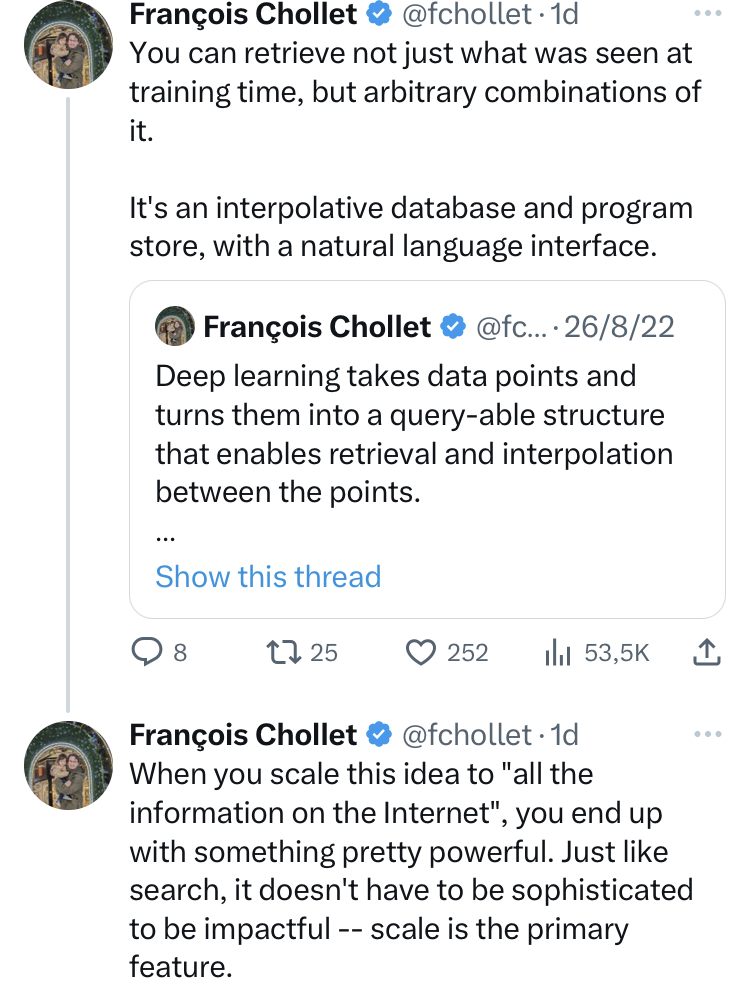
Metadata
- Author: Incompleteideas
- Full Title:: The Bitter Lesson
- Category:: 🗞️Articles
- Document Tags:: Nlp For Seedtag
- URL:: http://www.incompleteideas.net/IncIdeas/BitterLesson.html
- Finished date:: 2023-03-18
Highlights
Seeking an improvement that makes a difference in the shorter term, researchers seek to leverage their human knowledge of the domain, but the only thing that matters in the long run is the leveraging of computation (View Highlight)
Time spent on one is time not spent on the other (View Highlight)
Go, only delayed by a further 20 years. Enormous initial efforts went into avoiding search by taking advantage of human knowledge, or of the special features of the game, but all those efforts proved irrelevant, or worse, once search was applied effectively at scale (View Highlight)
Learning by self play, and learning in general, is like search in that it enables massive computation to be brought to bear. Search and learning are the two most important classes of techniques for utilizing massive amounts of computation in AI research. (View Highlight)
Deep learning methods rely even less on human knowledge, and use even more computation, together with learning on huge training sets, to produce dramatically better speech recognition systems (View Highlight)
We have to learn the bitter lesson that building in how we think we think does not work in the long run. The bitter lesson is based on the historical observations that 1) AI researchers have often tried to build knowledge into their agents, 2) this always helps in the short term, and is personally satisfying to the researcher, but 3) in the long run it plateaus and even inhibits further progress, and 4) breakthrough progress eventually arrives by an opposing approach based on scaling computation by search and learning. The eventual success is tinged with bitterness, and often incompletely digested, because it is success over a favored, human-centric approach. (View Highlight)
The two methods that seem to scale arbitrarily in this way are search and learning. (View Highlight)
we should stop trying to find simple ways to think about the contents of minds, such as simple ways to think about space, objects, multiple agents, or symmetries. All these are part of the arbitrary, intrinsically-complex, outside world. They are not what should be built in, as their complexity is endless; instead we should build in only the meta-methods that can find and capture this arbitrary complexity. Essential to these methods is that they can find good approximations, but the search for them should be by our methods, not by us. We want AI agents that can discover like we can, not which contain what we have discovered (View Highlight)
Related: 